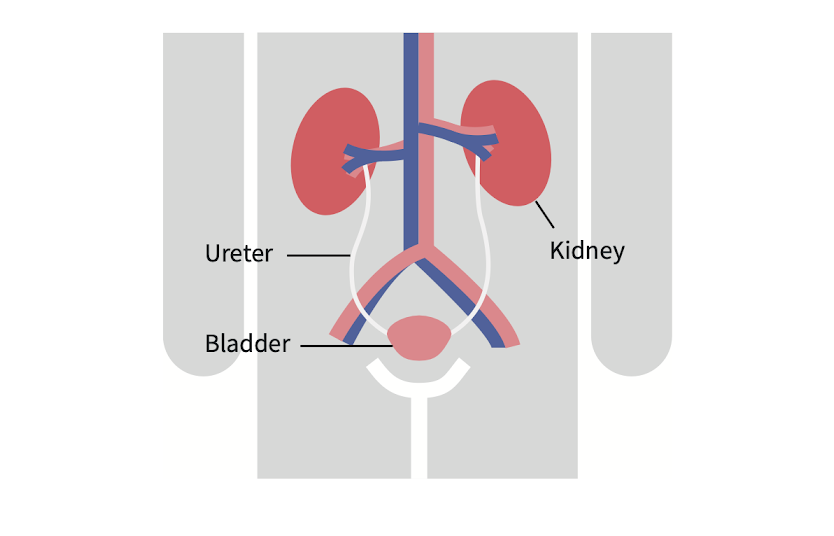Understanding Your Kidneys
Staying healthy starts with learning about your kidneys, how they work, and what chronic kidney disease (CKD) is.

Keep your kidneys healthy by understanding how they work and how chronic kidney disease (CKD) develops.
All about your kidneys
Your kidneys are two bean-shaped organs, each about the size of your fist. They are located in the abdomen, along the spine and just under your ribs.
How your kidneys work
Filtering waste products, some medications, and fluid is the most important function of the kidneys:
- Blood enters your kidneys through an artery from your heart.
- Blood is cleaned by passing through tiny blood filters in the kidneys.
- Newly cleaned blood returns to your bloodstream through your veins.
- Waste material passes from the kidneys to your ureters and is stored in your bladder as urine.
- Your bladder becomes full, and urine passes out of your body through your urethra.
Your kidneys do other important jobs too:
Regulating chemicals in the body
Your kidneys maintain the proper balance of electrolytes in your body, like sodium, potassium, calcium, and magnesium. They remove extra amounts of these electrolytes from your blood and flush them out in the urine. They also help maintain the correct acid-base balance in your body.
Producing hormones
Your kidneys produce important hormones that help make red blood cells and regulate blood pressure. They also produce an active form of vitamin D that helps you absorb calcium from food to build healthy bones and keep your muscles working normally.

Your kidneys and chronic kidney disease (CKD)
Your kidneys have around a million tiny filters, called nephrons. When some of your nephrons become damaged and stop working, the healthy ones take over. If the damage continues, more and more nephrons shut down and the kidneys become unable to do their jobs.
Some damage is a natural part of aging, but additional kidney damage can come from:
- Chronic diseases like diabetes and high blood pressure
- Conditions like autoimmune diseases, kidney stones, kidney infections, and some genetic diseases
- Some medications, herbs, and supplements
Symptoms of kidney disease
CKD may seem to come on suddenly, but it usually has been developing for many years. Some people start to have symptoms only a few months after their kidneys begin to fail, and for others it may take many years. These symptoms may include:
- Urinating less or more than normal
- Swelling and weight gain from fluid buildup
- Losing your appetite or having unexpected weight loss
- Feeling nauseated or vomiting
- Being either very sleepy or unable to sleep
- Trouble thinking clearly
- A metallic taste in your mouth
- Severe itching
Early testing
Kidney disease can run in families. If you have kidney disease, encourage close family members to have their kidneys tested. If kidney disease is found early, treatment can be started to slow or stop the damage.
We are here to help
Your care team can help answer your questions about your kidneys and CKD. Reach out for any support you need.